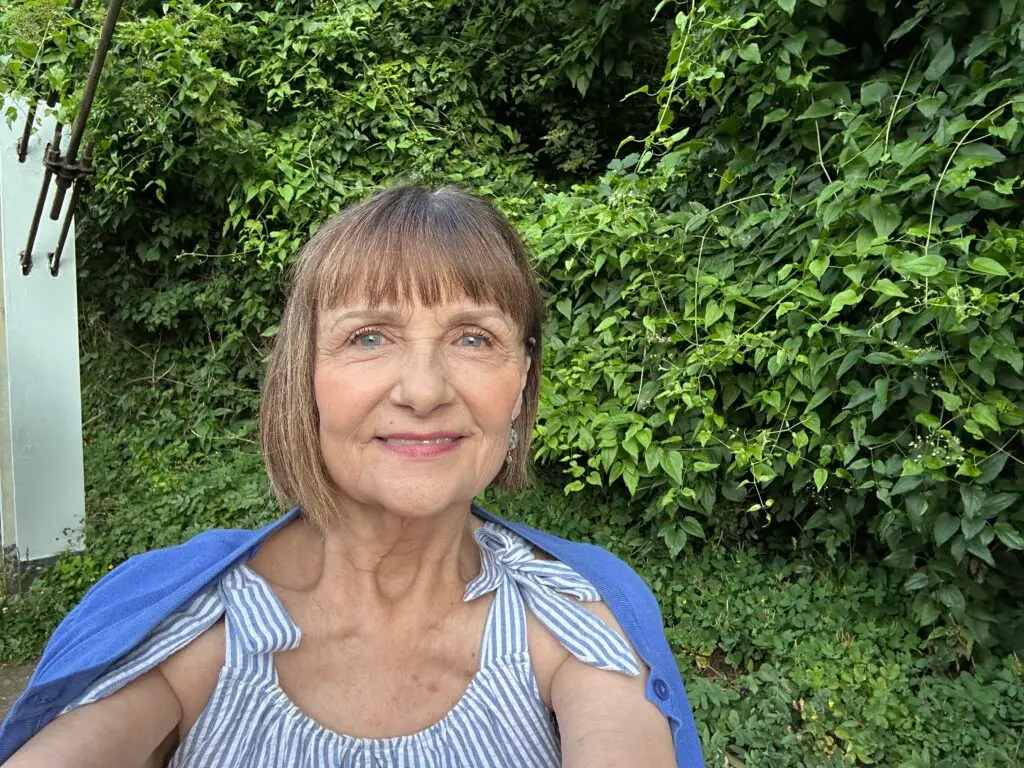Picture this: you’re an anesthesiologist in Paris, speaking to a patient before surgery. French isn’t your first language, but you must reassure them and explain the procedure with clarity. Or imagine being a surgeon in Geneva, walking a family through the risks of a complex operation, choosing your words carefully to convey both precision and empathy. Maybe you’re an emergency doctor in Brussels, where every second counts, and communicating symptoms accurately in French can impact the outcome of life-saving care.
For non-native doctors, working in French-speaking countries can feel daunting. Medicine leaves no room for misunderstanding, and navigating medical jargon in a second language requires focus, practice, and the right tools.
At Feel Good French, we know the challenges you face. This guide will help you gain confidence and fluency in the medical French you need to connect with your patients and provide exceptional care.
Why Foreign Doctors Need to Learn Medical French
As a doctor, the chances are that your schedule is already packed. Balancing patient care, administrative duties, and personal commitments leaves little room for anything else. But when practicing in French-speaking regions, fluency in medical French becomes non-negotiable. While general French courses can help with day-to-day conversations, they won’t prepare you for the unique challenges of your field. You need Français sur Objectif Spécifique (French for Specific Purposes)—focused, tailored language training for your profession.
Practicing medicine in regions like France, Switzerland, Belgium, or Quebec comes with high stakes: precision, clarity, and trust are non-negotiable. You’re already juggling the demands of your profession, and communicating effectively in French adds another layer to the challenge.
Here are some real-world scenarios where medical French is indispensable.
- Surgeons in Switzerland: preparing patients for surgeries and discussing post-operative risks with their families.
- Emergency Doctors in Belgium: managing high-pressure scenarios where clear, fast communication in French can save lives.
- General Practitioners in Quebec: building relationships with patients while diagnosing illnesses and explaining long-term care.
- Cardiologists in Paris: guiding patients through recovery plans and communicating complex procedures in a way that reassures and informs.
- Anesthesiologists in Lyon: ensuring patients understand sedation options and associated risks during pre-operative consultations.
If you’ve found yourself struggling to express yourself clearly, or hesitating when a word escapes you, you’re not alone. Medical French isn’t about perfection—it’s about being able to connect, reassure, and give explanations when it matters most.
Learn Medical French: Vocabulary and Practical Tips
Delivering exceptional care in French-speaking environments requires more than medical expertise—it demands a command of the language that ensures clarity, empathy, and precision in every interaction. Whether you’re explaining a diagnosis, providing reassurance, or responding to an emergency, having the right vocabulary, confident pronunciation, and hands-on experience can transform the way you connect with patients.
Imagine walking into a consultation and confidently saying, “Ressentez-vous de la douleur ici ?” (Do you feel pain here?), rather than hesitating over the words. Or explaining, “Nous allons faire un scanner pour confirmer le diagnostic.” (We’ll perform a scan to confirm the diagnosis.) These aren’t just phrases—they’re the foundation of trust and understanding in your practice.
Here’s how you can build these skills: mastering essential vocabulary, refining pronunciation, and integrating real-world practice. Let’s explore the tools and strategies to make this achievable for you.
1. Build Your Core Medical Vocabulary in French
Start with the words you’ll use most often. Here’s a breakdown of key terms grouped by themes, with examples to put them in context.
Common Medical Terms
| English | French | Pronunciation | Example Sentence |
|---|---|---|---|
| Diagnosis | Le diagnostic | [djaɡ.nɔs.tik] | Le diagnostic a confirmé une pneumonie. |
| Pain | La douleur | [du.lœr] | Ressentez-vous de la douleur ? |
| Fever | La fièvre | [fjɛvr] | Le patient a une fièvre élevée. |
| Infection | Une infection | [ɛ̃.fɛk.sjõ] | Nous avons détecté une infection pulmonaire. |
Vocabulary : Body Parts in French
| English | French | Pronunciation | Example Sentence |
|---|---|---|---|
| Heart | Le cœur | [kœʁ] | Les battements du cœur sont irréguliers. |
| Lung | Le poumon | [pu.mõ] | Il y a une infection dans le poumon droit. |
| Kidney | Le rein | [ʁɛ̃] | Le patient présente des douleurs dans la région du rein gauche.” |
| Liver | Le foie | [fwa] | Le foie montre des signes d’inflammation. |
2. Watch Out for False Friends
Some French terms may look familiar but have entirely different meanings. Avoid common traps like these “faux-amis”:
| French Word | False Friend | Actual Meaning | Example Sentence | Explanation |
|---|---|---|---|---|
| Assister à | Assist | Attend | “J’ai assisté à la conférence sur la médecine.” (I attended the medical conference.) | In French, assister à means to attend an event, not to assist someone directly. |
| Médecin | Medicine | Doctor | “Le médecin a prescrit des antibiotiques.” (The doctor prescribed antibiotics.) | Refers to a physician or doctor, not the field of medicine (médecine). |
| Préservatif | Preservative | Condom | “Ce produit ne contient pas de préservatif.” (This product contains no condoms.) | Refers to contraceptives, not food preservatives (conservateur). |
| Ordre | Order | Professional Board | “Il est inscrit à l’Ordre des Médecins.” (He is registered with the Medical Council.) | Refers to a regulatory or professional body, not a command or sequence. |
| Demander | Demand | Ask/Request | “Le patient a demandé des informations sur son traitement.” (The patient asked for information about their treatment.) | In French, demander means to ask, not to demand forcefully. |
3. Practice French with Contextual Flashcards
Flashcards are a simple but effective tool for mastering vocabulary. Add real-life context to make terms easier to remember. Use platforms like Quizlet or Memrise to organize and review them.
Example Flashcard:
Back: “Le patient se plaint de douleur abdominale.” (The patient complains of abdominal pain.)
Front: “La douleur” (The pain)
4. Simulate Patient Interactions
Practice role-playing common scenarios to build fluency. Tailor these to situations you’ll face in your specialty.
Example: Emergency Consultation
Doctor: “Nous allons faire un électrocardiogramme immédiatement.” (We’ll perform an electrocardiogram immediately.)ps:
Doctor: “Quels sont vos symptômes ?” (What are your symptoms?)
Patient: “J’ai du mal à respirer et une douleur dans la poitrine.” (I’m having trouble breathing and chest pain.)
5. Revisit Real Medical Cases in French
Use cases from your practice to practice applying medical vocabulary. This helps reinforce what you’ve learned in realistic situations.
Example Challenge:
- Case: “Une fracture” (A fracture)
- Explanation: “Nous allons immobiliser la zone avec un plâtre.” (We will immobilize the area with a cast.)
6. Translate “Every Day” Patient Expressions
Patients often describe their symptoms in casual or colloquial French, which may not match textbook phrases. Practicing these real-world translations ensures you’re prepared to understand and respond accurately.
| French Expression | English Translation | Context/Use |
|---|---|---|
| “Je ressens une douleur aiguë ici.” | “I feel sharp pain here.” | Describing localized, intense pain. |
| “J’ai la tête qui tourne.” | “I feel dizzy.” | Used when experiencing vertigo or lightheadedness. |
| “Ça me brûle quand je respire.” | “It burns when I breathe.” | Often related to respiratory infections or chest pain. |
| “J’ai des nausées depuis ce matin.” | “I’ve been feeling nauseous since this morning.” | Describing ongoing nausea or gastrointestinal discomfort. |
| “Je ne sens plus ma jambe.” | “I can’t feel my leg anymore.” | Indicating numbness or loss of sensation, often for neurological issues. |
| “Mon cœur bat trop vite.” | “My heart is beating too fast.” | Describing tachycardia or irregular heartbeat. |
| “J’ai une boule dans la gorge.” | “I feel a lump in my throat.” | Often used to describe anxiety, discomfort, or physical symptoms related to swallowing. |
6. Set Clear And Measurable Vocabulary Goals
Set realistic learning goals and track your progress using spaced repetition tools like Memrise. Breaking your objectives into smaller, achievable steps ensures steady improvement and keeps you motivated.
Example Goal:
- “This month, I’ll learn 20 new terms related to diagnostics and medications.”
- “By the end of this week, I’ll be able to confidently describe five common symptoms in French, such as la fièvre (fever), le vertige (dizziness), and la nausée (nausea).”
- “I will memorize 10 new body part terms like le poignet (wrist), la cheville (ankle), and le foie (liver), and practice them in sentences during my next study session.”
- “This week, I’ll practice translating three common patient expressions into French, such as ‘Ça me brûle quand je respire.’ (It burns when I breathe), and use them in role-play scenarios.”
- “By Friday, I’ll have mastered the pronunciation of 15 key medical terms like l’infection (infection), l’abcès (abscess), and l’ordonnance (prescription), and tested myself using audio flashcards.”
- “I’ll learn 10 new phrases for explaining treatment plans in French, such as ‘Nous allons prescrire un antibiotique.’ (We will prescribe an antibiotic), and practice them with a colleague or tutor by the weekend.”
This approach ties your learning goals directly to actionable vocabulary in context, making them more practical and immediately useful.
7. Visual Vocabulary To Learn French Easily
Use visuals to make abstract terms more memorable. Label items in your workspace or add images to flashcards.
Example:
- Term: “Le tensiomètre” (The blood pressure monitor)
- Visual: add a picture of the device to your flashcard.
8. Make Vocabulary Dynamic with Synonyms and Challenges
Expand your vocabulary by learning synonyms and testing yourself with matching games.
Example:
- Term: “Un antalgique” (A painkiller)
- Synonyms: “Un analgésique”, “Un médicament contre la douleur”
Activity: create a timed quiz on Quizlet to match terms with synonyms.
Resources for Foreign Doctors : Learn Medical French Online
Mastering medical French is about more than studying vocabulary lists—it’s about equipping yourself to navigate real-life medical scenarios with confidence and clarity. Whether you’re a surgeon preparing for a consultation or an emergency doctor handling a high-pressure situation, having access to the right resources is key. From books and online tools to immersive learning techniques, these recommendations will help you communicate effectively and connect with patients in French-speaking environments.
Books to Build Your Foundation in Medical French
Books remain one of the best ways to develop a strong grasp of medical French. Here are some highly recommended ones:
- “Le Français Médical” by Pierre Vandamme
A comprehensive guide covering medical vocabulary, patient interactions, and specialized terms. Perfect for building confidence in clinical conversations. - “Communication en Médecine” by Éditions Ellipses
Focuses on practical dialogues and real-life situations, with cultural insights to help you navigate French-speaking medical environments. - “Guide de Conversation Médicale” by Jean-Luc Souveton
A pocket-sized reference packed with ready-to-use phrases and key vocabulary for day-to-day medical practice. - “Manuel de Français Médical” by Jean-Marc Hardy
Tailored for non-native doctors, this manual combines grammar and vocabulary lessons with professional scenarios.

Online Tools for French Medical Vocabulary
The internet offers a wealth of specialized resources for learning medical French, from glossaries to interactive tools that cater to different aspects of medical communication. Here’s a curated list of platforms and tools to help you improve your understanding of medical French.
Abréviations Médicales
This comprehensive glossary features over 3,000 medical abbreviations commonly used in French-speaking healthcare environments. It’s an essential tool for decoding prescriptions, clinical notes, and diagnostic reports.
Reverso Medical Dictionary
Reverso provides precise translations and contextual examples of medical terms, making it a go-to resource for understanding nuanced language during consultations or while reviewing medical literature.
MedineLingua’s French Medical Abbreviations
This platform offers a curated list of abbreviations tailored for healthcare professionals, helping you interpret reports and prescriptions with ease.
Le Dictionnaire Vidal
Often referred to as the French equivalent of the Physician’s Desk Reference, this tool provides detailed information about medications, their uses, dosages, and contraindications. A must-have for anyone working in pharmaceuticals or prescribing medication.
FrenchEntrée Medical Terminology
This resource offers a practical breakdown of essential medical vocabulary, categorized by themes like symptoms, treatments, and patient interactions.
Linguee
Linguee combines dictionary definitions with real-world sentence examples, offering synonyms and context to deepen your understanding of technical medical terms.
Orthodidacte – Medical Spelling and Grammar
Aimed at professionals, Orthodidacte refines your written French by focusing on proper spelling and grammar for medical reports, prescriptions, and correspondence.
CNRTL – Medical Lexicon
The National Center for Text and Lexicon Research provides a specialized medical terminology section, making it a robust tool for understanding complex terms and their etymology.
How to Make the Most of These Learning Tools
- Combine Multiple Resources: use tools like Abréviations Médicales to understand abbreviations and Reverso for context and pronunciation.
- Bookmark Essential Platforms: save your frequently used tools for quick access during patient consultations or study sessions.
- Practice Daily: dedicate a few minutes each day to explore new terms or reinforce previously learned ones.
- Apply Vocabulary in Context: use the vocabulary you learn from these tools in real-life scenarios, such as patient consultations or while shadowing medical shows.
By integrating these online tools into your daily routine, you’ll not only expand your vocabulary but also gain the confidence to handle any medical situation in French with ease.
Watch Medical Shows for Immersive Learning

What about chilling on the sofa with your favorite snacks and calling it learning? Watching medical dramas or movies isn’t just relaxing—it’s a sneaky way to master medical French. These shows drop you into real-life scenarios where you can hear doctors explain diagnoses, reassure patients, and use medical jargon naturally. It’s like eavesdropping on conversations you’ll soon have yourself—all from the comfort of your living room.
Take Hippocrate, for example, where a young doctor explains post-operative care: “Nous allons surveiller son état pendant 48 heures, et nous ajusterons le traitement si nécessaire.” (We’ll monitor their condition for 48 hours and adjust the treatment if needed.) By adding French subtitles, you can absorb vocabulary, hear the right tone, and see how words and gestures combine to deliver care effectively. Learning has never been this engaging—or this comfortable!
- French Medical Dramas:
- “Hippocrate” (France): a gripping French series set in a hospital, offering rich medical vocabulary in authentic dialogues.
- “Interventions” (France): a drama focusing on a surgeon’s life, blending professional and emotional challenges.
- “Nina”: a series focusing on the life of a nurse, offering exposure to everyday medical conversations.
- English Medical Shows with French Subtitles:
- “Grey’s Anatomy”: use French subtitles to pick up translations of complex medical terms.
- “The Good Doctor”: excellent for understanding detailed medical procedures while shadowing conversations.
- “House M.D.”: offers exposure to diagnostic discussions with technical vocabulary, perfect for learning specific terms.
- “Urgences”: the French-dubbed version of the classic ER, a great way to bridge familiar scenarios with new vocabulary
Use Shadowing to Build Fluency in French
Shadowing is a powerful technique to improve your pronunciation and listening comprehension. Here’s how to use it effectively with medical shows:
- Watch a Scene with Subtitles:
Select a short dialogue and focus on listening carefully while reading the subtitles. - Repeat Along with the Characters:
Pause the video and mimic the characters’ lines, matching their tone, pronunciation, and rhythm. For example:- “Où avez-vous mal ?” (Where does it hurt?)
- “Nous allons faire des analyses supplémentaires.” (We’ll run additional tests.)
- Switch Off Subtitles:
Challenge yourself to shadow without subtitles and assess your fluency. - Record Yourself:
Use your phone to record and compare your pronunciation to the original. Apps like Speechling or Forvo can provide additional pronunciation feedback.
Language Apps to memorise medical French vocabulary
As mentioned earlier, tools like Quizlet, Memrise, and Anki are excellent for reinforcing medical vocabulary through interactive and personalized learning methods.
- Quizlet: create custom flashcards for medical terms and test yourself with spaced repetition.
- Memrise: structured vocabulary learning with interactive exercises tailored for professionals.
- Anki: a favorite for language learners, offering customizable decks and scientifically optimized reviews.
Make Medical French Part of Your Routine: A 20-Min Plan to Fluency For Doctors in France, Belgium, Switzerland…
Dive into books, immerse yourself in medical dramas, and practice shadowing to make medical French part of your daily routine. Use apps and tools to reinforce what you learn, and don’t be afraid to challenge yourself with real-world scenarios. Consistent engagement with these resources will not only build your vocabulary but also boost your confidence in handling medical consultations in French.
Step 1: Journaling in French (5 minutes)
Write about your day or use prompts from our French Study Plan PDF, like:
- “Quelles sont les trois choses que vous espérez accomplir aujourd’hui ?” (What are three things you hope to accomplish today?)
This helps you improve sentence structure and recall vocabulary.
Step 2: French Listening Comprehension (10 minutes)
Watch a segment of a medical drama like Hippocrate or listen to a podcast such as La Médecine en Français. Repeat sentences aloud to practice pronunciation and rhythm.
Step 3: Practical Application of French Vocabulary and Grammar (5 minutes)
Actively use new vocabulary by role-playing consultations or translating key phrases like “Le patient a une toux persistante” (The patient has a persistent cough). This bridges learning with real-world scenarios.
Why This 20-Min French Language Routine Works
This balanced routine keeps learning manageable by focusing on small, consistent steps that fit into your busy schedule. By integrating all four language competencies—listening, speaking, reading, and writing—you ensure comprehensive skill development. Listening improves your comprehension, speaking builds confidence, reading expands vocabulary, and writing reinforces grammar and precision. Together, these elements create a well-rounded approach that prepares you for real-world medical scenarios, helping you communicate effectively and confidently with patients and colleagues.
👉 Download our French Study Plan and watch the YouTube video for more tips! 👇
What happens on the 2nd of February in France?
February 2nd in France sits in the Carnival season. Americans know Mardi Gras. This is…
She Didn’t Just Move to Provence. She Learned to Belong.
Interview with Carolyne Kauser-Abbott, Founder of Perfectly Provence Some people fall in love with Provence…
Beyond Strasbourg & Colmar: 5 Unexpected French Christmas Markets to Visit in 2025
December in France is more than a season. It is an atmosphere (une ambiance). A…
Moving to Fontainebleau: The Real Story of Janice in France
When Janice Deerwester says “Bonjour!” on her YouTube channel, her Texas accent still peeks through….
Go to the Bank in France: The American Expat’s Guide to French Banking
Moving to France as an American means discovering new food, new culture, and—yes—new bureaucracy. One…
French Clothing Sizes in US: A Clear Guide for American Expats
Your first weeks in France are a string of small delights and quick puzzles. The…








